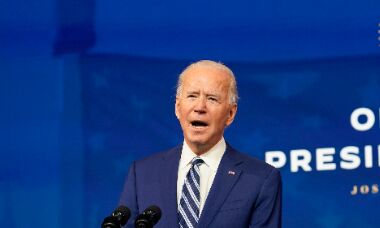Hidden agenda?

Of the many Trump-era policy decisions that Biden has pledged to look into, relations with China is among the more complicate ones. While Biden has taken a strong message of restoring the fate of America's allies in a partnership with the nation, he has taken an equally strong stand in asserting that America's rivals and enemies will be meted out what is due for them. While there are some expectations that Biden will put a stop to a series of successive US decisions that have antagonised China, there is no guarantee that Biden would soften his stance on China.
At the very least, it would seem likely that with many pressing issues that are more straightforward in approach, Biden is probably not going to immediately take up normalisation with China as a priority. This particularly matters in the current context because Biden is going to inherit a US relationship with China that is at the lowest possible ebb since the initial normalisation of the relationship back in the 1970s under Nixon. Aside from a devastating trade war and a series of combative legislations on investments and technology transfers, the US has also castigated China for its aggression on the South-China Sea, Hong Kong, Indian border and Taiwan front. In the case of Taiwan in particular, the outgoing US administration has cared little for decades of prior protocol that carefully distanced the US from Taiwan while still offering support to the nation. The policy of indirect contact meant that Taiwan could have no more than an unofficial embassy within the US and communication channels for the same were also more convoluted to reflect this distancing. With the Trump administration's marked preference for bilateral relationships as opposed to multilateral engagements, the relationship between the US and Taiwan has never been stronger. Indeed, the more antagonistic the relationship between US and China, the more benefit Taiwan has drawn as it sees never before witnessed number of state visits from the US and record arms sales that are part of the US commitment of keeping aiding Taiwan militarily. Yet another upcoming high profile visit by the US Ambassador to the UN just a few short weeks before the Biden inauguration solidifies this trend.
But of all the number of provocations and actions taken by the US in regards to Taiwan in recent times, there are none that can perhaps compare to the one taken recently when Mike Pompeo announced the total lifting of existing US-Taiwan communication and diplomatic restrictions. Above all, this means that the US will no longer refrain from officially referring to Taiwan as a sovereign country, outright ignoring China's insistence that Taiwan is a rightful part of China. To be sure, some have hailed the move as a welcome change. Both Taiwan and the US are part of a group of nations that are increasingly concerned by a more aggressive and combative China that is no longer content to passively assert its right over the South-China sea region. The latest change in the US-Taiwan relationship only formalises what already existed in some form or fashion. But, for the few that argue the merits of this move, there are many other who view it more cynically. Many critics are concerned with the obvious timing issue of the decision. Taken, less than two weeks before Biden takes office, this decision was taken without consulting the incoming President. Not only does this decision risk sending the Biden administration and China on a collision course, many also see it as an obvious ploy for baiting Biden to look weak as he possibly reverses the decision. For its part, the Biden administration has only just committed to upholding the 1979 Taiwan Relations Act which goes together with US's one-China policy. All the same, Biden is unlikely to make any drastic concessions as he faces intense scrutiny by his political opponents that have repeatedly asserted that the Democrats are beholden to China. China for its part is not likely to risk creating an antagonistic relationship with a new US administration within the first few weeks and will likely welcome some form of diplomatic reconciliation, even given this current escalation.



